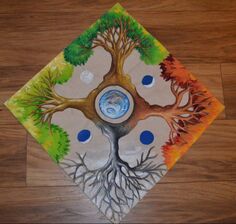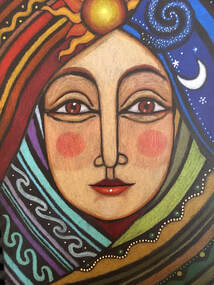|
So, I've been eating Paleo, more or less, since October 20, 2012. Three months.
I've bought 5 Paleo cookbooks and probably 30 e-books and shorter guides, read lots of books, watched many videos. To some extent, I don't really need the cookbooks, because I'm a good cook, but it helps to have inspiration. It can be easy to get into a rut. But I confess, I sometimes find Paleo cookbooks surprisingly simplistic. Simple is good. I like recipes with very few ingredients. I'm just surprised someone would need a recipe for beef stew or plain broth. Then I remember that I've been cooking from scratch all my life. If my family went out for a meal, it was a good meal in a nice restaurant, better than we'd have at home. This was a baseline assumption. Eating out equals a treat, not simply getting out of cooking and never because it was fast. If the food is not as good as home-cooked, my parents or my husband and I wouldn't bother. So knowing how to make stew or broth or other dishes seems effortless to me, something I hardly need to have explained. But that didn't just happen, it's the result of how I grew up, the assumptions and values I was raised with and experiences I've had along the way. It's easy to take your own life history for granted and not see that something so natural for me can be a treasure for other people. My mother followed Julia Child and other great chefs. She would host dinner parties and plan her menus with great care. So I have it ingrained that cooking is something you would WANT to do well, a skill and craft you can strive to perfect. I was married for 14 years to a man who took pride in being frugal. We both cooked. He often planned and cooked for large events and parties, I did most of the day to day cooking. We saved bones, meat scraps and vegetables and made a huge pot of soup stock, then we divided the stock into two or three portions, and made a different soup from each portion (as examples, a curried rice soup, a tomato based minestrone style, and a hearty lentil and yam soup, all from the same base). We'd freeze the soups in two-portion size containers, and have that with bread, maybe sliced meat and vegetables, pickles or whatever we felt like eating, as our lunch at home. We bought a few pre-packaged items at CostCo, mostly things like frozen breaded fish or portions of meat or chicken, and HUGE bags of frozen mixed vegetables we couldn't get at our local supermarket. These were ingredients for meals we'd then cook ourselves. We bought few items ready to serve, or that needed only to be microwaved. We had a huge upright freezer, just two of us, that was always full, of ingredients or of foods we had prepared ourselves. We'd go in on a whole cow or a pig with friends or family members, so we had a stock of meat on hand. We'd get packages of meat from people who hunted. We'd buy produce in season and freeze it for later, when bell peppers can cost as much as fresh meat. So for me, the idea of cooking everything myself is nothing new. Following recipes is not new. I need cookbooks and blogs for ideas on what to pack for lunch if I won't be at home, or Paleo-friendly snacks. Getting caught on an all-day shopping trip with only the Food Court as an option is not the best situation for making good food choices. Even a farmer's market can be problematic at meal-time, if the only items for sale need to be cooked or processed to be edible, or you're already maxed out on fruit for the day and need something substantial. When your companions opt for bagels and cream cheese or ice cream, or other scrumptious looking easy fare, you need to have a plan to ward off temptation, or some Paleo friendly snack in your shoulder bag. This is where cookbooks and blogs can be invaluable for tips and tricks. And I came of age in the 1970s, when Frances Moore Lappe's Food For a Small planet was popular and vegetarianism was starting to become mainstream. I lived in a town that took everything counterculture seriously, and learned how to cook with brown rice and lentils, how to use whole grains, why sugar was bad for you. When I was at art college, we would challenge each other to go without sugar for a week or a month, and share our experiences. Then I went to university in a much larger city, met people from other cultures, learned to love other foods. Art historians LOVE good food, so we would have amazing potlucks when I was in grad school, where everyone brought fabulous dishes and shared recipes, and we would talk about each dish and what was so great about it. We appreciated food and talked about it like, well, art historians: the colours, the textures, the way the flavours blended or stood out. My personal experience with food and cooking is, I now realize, vast compared to that of many people. And, I must grudgingly admit, perhaps my age is a factor here, that I grew up at a time when stay-at-home moms were common, and learning to cook well, or at least decently, was expected for most mothers and wives. Maybe it's not as easy for people who grew up in two-income families or with single parents, without the model of cooking as something that took up a good portion of the day and could be done well. And I grew up in small towns and both my parents were from small towns, where take out food simply was not an option decades ago. But I know a woman, older than me, whose mother saw cooking as a necessary evil. She wanted to be helping out on the family farm or reading. She felt that cooking was not as important as picking fruit or studying, even though cooking and food were obviously necessary. Cooking was not "real work," it didn't contribute, in her mind, in the same way that orchard work did, and it wasn't important the way mastery of an intellectual topic could be. So it's not even a generational thing or about where you grew up, it's also about the specific qualities your family emphasized and saw as valuable. Implicit in my own upbringing was the sense that food was important, that cooking tasty, nourishing food was a critical part of a happy home, a major contribution. Both of my grandmothers were good cooks, and both regarded that as something to be proud of. I don't know if my maternal grandmother loved cooking 3 meals a day every day for a family of 5 kids plus assorted friends and relatives. In fact, I'm fairly sure she did not LOVE it all the time. Even cooking for two can get tedious day in and day out. I don't even know that she was a GOOD cook. But the assumption in my mother's family was that people cooked, that home cooking tasted good, and it was something you would want to do. The jokes about home cooking maybe not being anything you'd want to eat have never made sense to me, so that tells me being a good cook was a baseline assumption in my mother's family. And I know that my mother's paternal grandmother would run across town with Swedish specialties for the grandkids, so piping hot from her oven she had to wear oven mitts. Mom said maybe she thought Mom's mother never fed the kids, from the way all of them fell on everything she brought and devoured it like vultures. (As a side note, one of her specialties was Swedish oven pancake, which became a Christmas tradition in the family. And so much a valued tradition that one of my cousins took pictures of his own Swedish oven pancakes this Christmas morning, and emailed them to me. See below, "food is love.") I know for sure my father's mother was a good cook. I remember her meals. I remember that when we visited, she made a point of making things she knew someone in the family enjoyed. She always made roast beef because she was sure my father loved her roast beef dinners more than anything. Finally, my mother broke it to her that my Dad ALSO really loved her fried chicken and he wished she would sometimes make that. My father loved his mother's strawberry shortcake so much, my mother spent decades perfecting shortcake like her mother-in-law made. I was well into my twenties before I realized it was possible to say, "no, thank you, Grandma, I don't NEED another piece of chicken/slice of beef/potato/Yorkshire pudding." It still did not go over well when I did say it, it didn't WORK, but it was POSSIBLE to try to turn it down! That took adult fortitude and gumption to figure out in the face of an old-time Grandma! Maybe that's what people need to get, that food is love. Food is not simply nutrients or a chore, it's something we need on many levels. Food is nourishment and comfort, a way of giving love to family and friends, and ourselves. Maybe if we saw that as its PRIMARY purpose, and really believed in that, we'd have less inclination to just grab a burger on the way home or eat a packaged meal. Cook from scratch, or at least from ingredients you combine yourself, set the table even if you're alone, or at least use a plate, not the pot. Pack yourself a nice lunch. Make meal plans and cook food ahead so you have real food when you're hungry. The time and energy it takes to cook and eat a meal is not wasted. Grabbing something quick is sometimes necessary, but it doesn't nourish our bodies, or our souls, the same way a home-cooked meal can. Getting that, really getting it, makes Paleo cooking a pleasure for me. I leave out a few ingredients now from the classic dishes (no potatoes in the beef stew these days), or I follow a recipe to learn how to work with unusual flours or nuts in place of flour, but the methods are the same. After several years of feeling there was nothing I could eat, Paleo cooking has brought me back to my roots, back to the understanding that we don't merely eat to live. Food is love, food is life.
0 Comments
Leave a Reply. |
JoAnn TurnerI'm easily amused. I try to be positive about things, yet I am also driven to distraction by irrationality. Especially if the purpose is valid, but could be achieved with less drama. You'll see all of this in my writing! Archives
April 2017
Categories
All
|
 RSS Feed
RSS Feed


